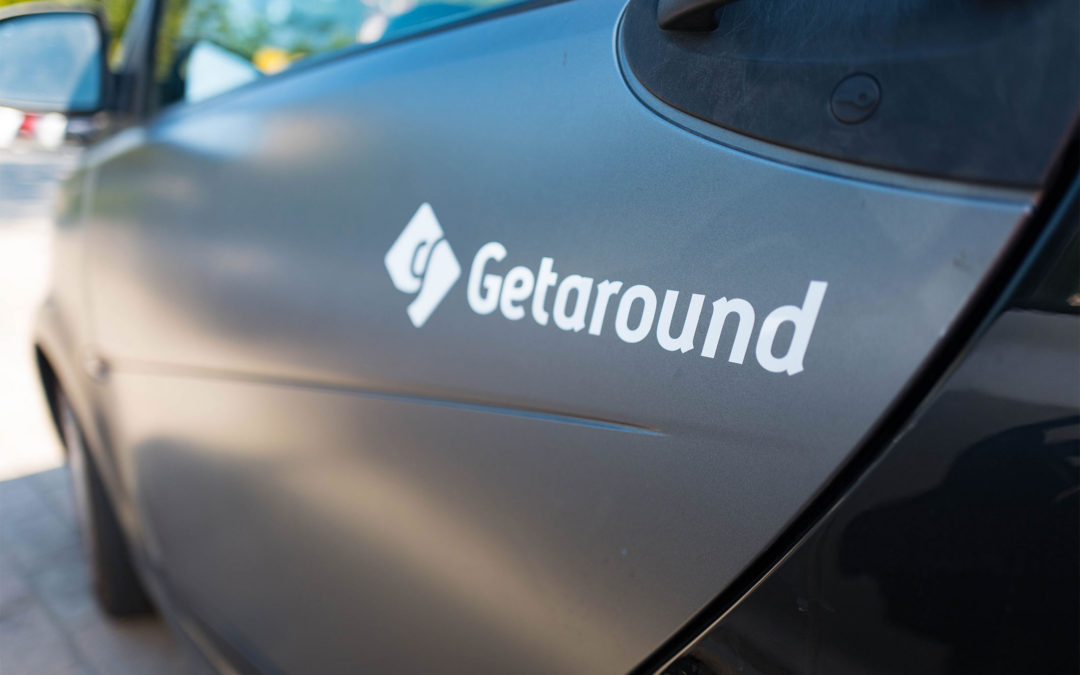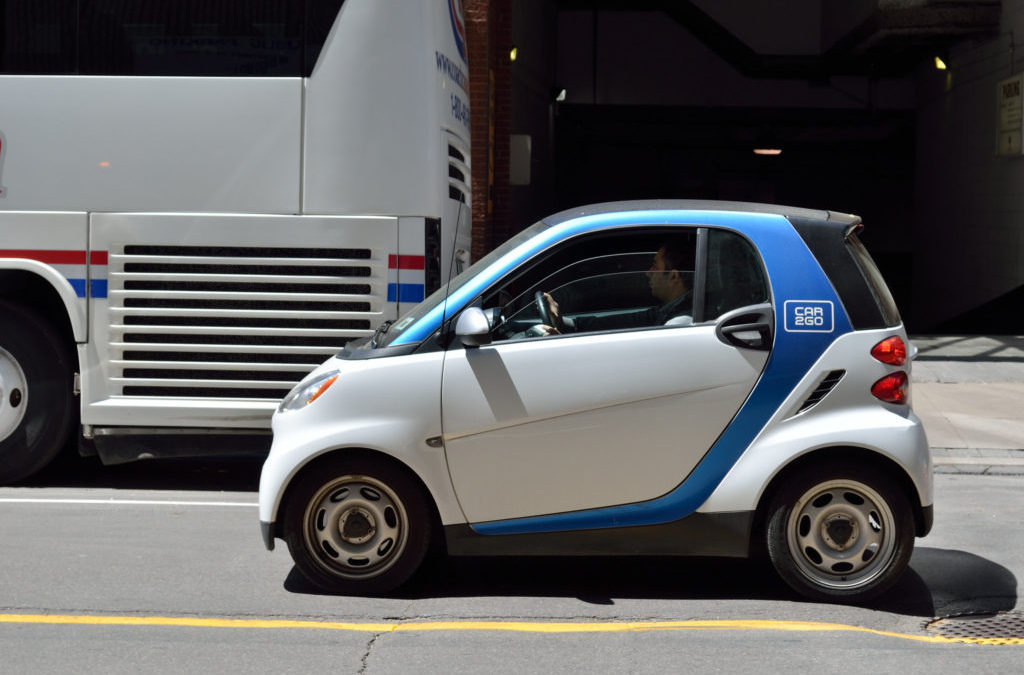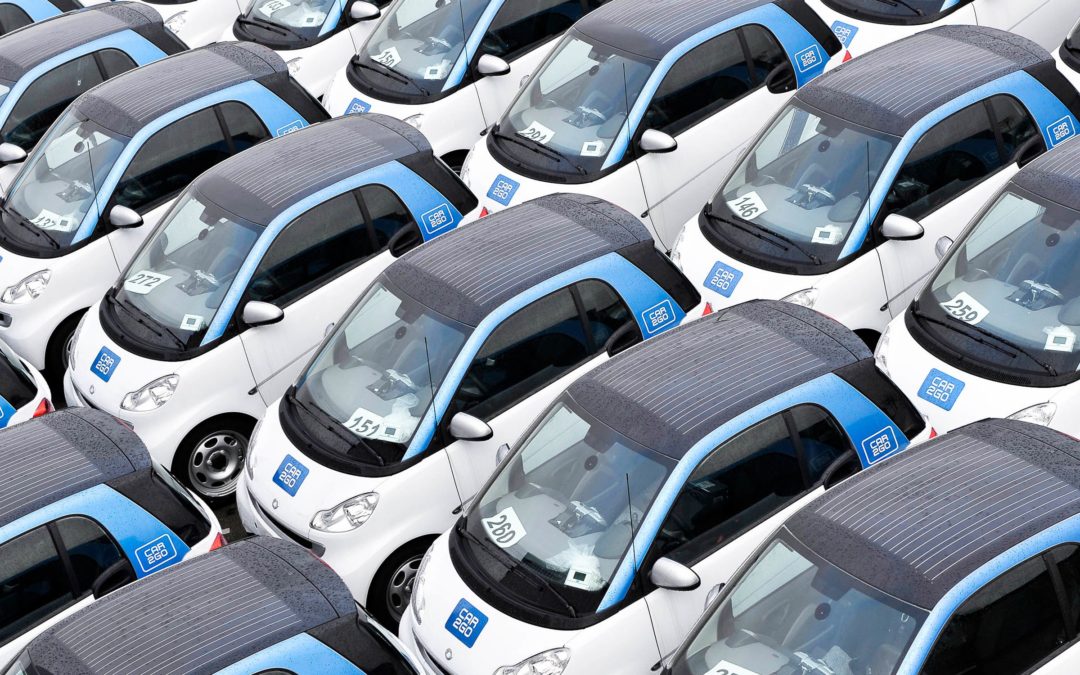by Innovative Mobility Research | Aug 11, 2023 |
Authors: Susan Shaheen, PhD, Adam Cohen, Jacquelyn Broader Date: July 2023 Abstract: Curb space has been traditionally designed for private vehicle parking, public transit, and passenger and commercial loading. However, in recent years, a growing number of newservices and activities have increased the demand for limited curb space, including passenger pick-up and drop-off; last-mile delivery (e.g., courier network services, personal delivery devices); electric vehicle (EV) charging; micromobility parking and use (e.g., personally owned and shared bikes and scooters); and carsharing services. The curb serves a variety of functions such as vehicle and device storage (including personally owned and shared vehicles and devices), outdoor dining and retail, greenspace, and other uses. These changes are contributing to a notable shift in how people access and use the curb, and how public agencies plan, prioritize, and manage curbside interactions. View...
by Innovative Mobility Research | Aug 30, 2022 |
Authors: Elliot Martin, Adam Stocker, Aqshems Nichols, Susan Shaheen Date: February 2021 Abstract: The study found that roundtrip carsharing in NYC mostly serves as a substitute for car rental, other personal vehicle modes, and personal vehicle ownership. The analysis showed that the broader pilot program had a modest impact on user behavior through carsharing (i.e., reduced vehicle ownership, reduced VMT, and mode shift). It also found that the pilot program likely expanded the membership base of carsharing to demographic cohorts that are traditionally underrepresented in carsharing populations (i.e., increased participation by lower education levels, lower household incomes, minority demographics). The study also examined vehicle ownership impacts and changes in vehicle miles traveled (VMT) and greenhouse gas (GHG) emissions. Analysis of survey and activity data indicated that 7% of NYC carsharing members avoided a car purchase, and 0.61% of members got rid of a car they already owned due to carsharing. Across the membership base, VMT was reduced by 7% and GHG emissions were reduced by 6%. These findings showed that carsharing reduced VMT and delivered associated environmental benefits within NYC, and more broadly had a substantive impact on travel behavior among members in form of mode shift away from personal automotive modes. View...

by Innovative Mobility Research | May 22, 2020 |
Bloomberg May 20, 2020 Car-sharing platforms, which have suffered during the Covid-19 lockdown, see an opportunity emerging: an increase in short-distance, local trips as U.S. consumers look for a different way of getting to work and running errands. Executives from Turo, GetAround and ZipCar are hoping their pitch to customers—a means of travel that is cheaper than car ownership and sanitary—will also win business from public transit users and Uber and Lyft riders. In addition to the uptick in shorter trips, the companies also report increased use by essential workers and health-care workers. “Customer confidence in travel safety can change their booking habits,” said Preeti Wadhwani, a research analyst with Global Market Insights. “Health-care providers or first responders are relying on car-sharing companies such as Turo to commute to work.” GetAround says overall trip volume in the U.S. has declined by almost 50% since states began shutting down their economies in mid-March. Turo says its business also has fallen dramatically, undoing the 60% year-on-year growth they saw as recently as February, according to Chief Executive Officer Andre Haddad. Zipcar also reports an “expected decline in demand,” particularly in business travel and on university campuses, Zipcar President Tracey Zhen said in an email… Read full article...

by Innovative Mobility Research | Mar 3, 2020 |
Margaret Barthel March 3, 2020 ShareNow — previously known as car2go — officially shut down its carsharing business in D.C. and North America over the weekend after eight years in the city. Despite its departure, experts say that carsharing isn’t struggling here in the D.C. region. “Washington D.C. is actually one of the strongest marketplaces for these types of on-demand options in the entire United States,” said Susan Shaheen, a professor of engineering who co-directs the Transportation Sustainability Research Center at the University of California Berkeley. Shaheen attributes D.C.’s strong use of shared mobility services — carsharing, ride-hailing, bike-sharing, and e-scooters, to name a few — to relative support from local government and general walkability. That means, Shaheen said, that D.C.-area residents are more used to making choices about how to get around. The relationship between different shared mobility services is both competitive and complementary, she thinks — something illustrated in studies she conducted examining the effect of the rise of ride-hailing on carsharing… Read the full article...

by Innovative Mobility Research | Jan 17, 2020 |
Aarian Marshall December 19, 2019 The US is about to lose another car-share service. On Wednesday, the Daimler- and BMW-owned entity that operates the service Share Now said the company’s cars would disappear from North American streets by the end of February 2020. For customers in New York, Montreal, Seattle, Washington, DC, and Vancouver, that’s a bummer. It’s a bummer as well for those who enjoyed short-term rentals in London, Brussels, and Florence, Italy—service will stop there too. The story of Share Now, formerly known as Car2Go, is emblematic of the twisty path that transportation services took in the 2010s. Founded by Daimler in 2008, Car2Go arrived at a moment of smartphone-fueled optimism about “mobility” tech. A company called UberCab would sprout in San Francisco a year later. Amid talk of falling car ownership and rapid urbanization, automakers were on the lookout for the next big thing. Car2Go was an experiment in what car-sharing professionals call “point-to-point” sharing. The company struck deals with cities to allow customers to locate, pick up, and park Daimler-owned cars—extra-compact white and blue Smart Cars—almost anywhere on city streets. (Some competitors, like Zipcar, have dedicated parking spots for their users.) In February, a decade into a new world of tech-driven experiments, Daimler and BMW announced they would combine their mobility services under one entity, called Share Now. By October, it was clear that the business was in trouble, when the company said it would pull out of half its North American markets. Now, Share Now will operate in fewer than 20 cities worldwide, with its largest operations in Germany and Italy. In a statement,...



